An Phailistín

[2003]
Nell’album “Libertango - Sharon Shannon & Friends”
Featuring Róisín Elsafty
Testo trovato su Mudcat Café
Sharon Shannon e Róisín Elsafty sono rispettivamente una musicista e polistrumentista ed una cantante irlandesi. In particolare Róisín Elsafty è da sempre dedita alla musica tradizionale interpretata in gaelico irlandese. Questa canzone sulla Seconda Intifada palestinese contiene anche delle parti in arabo egiziano che non ho trovate trascritte. Il patrigno di Róisín è egiziano.
Nell’album “Libertango - Sharon Shannon & Friends”
Featuring Róisín Elsafty
Testo trovato su Mudcat Café
Sharon Shannon e Róisín Elsafty sono rispettivamente una musicista e polistrumentista ed una cantante irlandesi. In particolare Róisín Elsafty è da sempre dedita alla musica tradizionale interpretata in gaelico irlandese. Questa canzone sulla Seconda Intifada palestinese contiene anche delle parti in arabo egiziano che non ho trovate trascritte. Il patrigno di Róisín è egiziano.
Leathchéad bliain faoi riail Iosraelaigh,
(continua)
(continua)
inviata da Bernart Bartleby 15/5/2018 - 10:04
Percorsi:
L'Olocausto Palestinese
The Waterboys: Fisherman's Blues
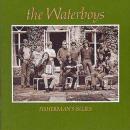
Seo Linn
2016
2016
AN TIASCAIRE
(continua)
(continua)
inviata da Dq82 17/10/2016 - 22:17
Johnny Seoighe
Nowhere is this criticism more bitterly expressed than in ‘Johnny Seoighe’, a satirical song in the refined allusive poetic tradition of Ireland, which can only be fully understood if one hears the accompanying scéal, the story traditionally told by the singer before singing: on Christmas Eve, the author (probably Tomás Shiúnach from Carna, in Connemara) and his family walked all the way to the workhouse only to find they couldn’t be accepted there for lack of space. They then asked the famine relief officer, Johnny Joyce (Seoighe, in Irish), for help and food, which was denied, and his wife and children subsequently died on the way back home from hunger and exhaustion. One can hardly imagine the grief that led to those subtly sarcastic and angry lines.
Here again, this song was long regarded as taboo, and kept well within the Carna community, until it started being sung in public in the... (continua)
Here again, this song was long regarded as taboo, and kept well within the Carna community, until it started being sung in public in the... (continua)
A Sheáin Uí Sheoighe tuig mo ghlór is mé ag tigheacht le dóchas faoi do dhéint
(continua)
(continua)
inviata da dq82 11/11/2015 - 12:44
An Bhuatais (Aor an tSagairt)
Diarmaid Na Bolgaí Ó Sé
[ca 1825?]
An angry song in Irish, highly critical of the clergy itself, is ‘An Bhuatais’, the story of a Catholic priest who preferred to buy himself new boots rather than take care of his dying parishioners during Great Famine. Understandably, this song was also very rarely heard in Ireland before the second half of the 20th century.
Available on:
Áine UÍ CHEALLAIGH: Isir Dhá Chomhairle (Gael Linn, 1992)
-Three Shouts from a Hill (1999)
Slide- Harmonic Motion (2002)
Frank HARTE and Dónal LUNNY: The Hungry Voice: The Song Legacy of Ireland’s Great Hunger (Hummingbird, 2004)
Michelle Mulcahy: Suaimhneas (2012)
An angry song in Irish, highly critical of the clergy itself, is ‘An Bhuatais’, the story of a Catholic priest who preferred to buy himself new boots rather than take care of his dying parishioners during Great Famine. Understandably, this song was also very rarely heard in Ireland before the second half of the 20th century.
Available on:
Áine UÍ CHEALLAIGH: Isir Dhá Chomhairle (Gael Linn, 1992)
-Three Shouts from a Hill (1999)
Slide- Harmonic Motion (2002)
Frank HARTE and Dónal LUNNY: The Hungry Voice: The Song Legacy of Ireland’s Great Hunger (Hummingbird, 2004)
Michelle Mulcahy: Suaimhneas (2012)
Ailliliú, a dhuine a chruinnigh an t-ualach,
(continua)
(continua)
inviata da dq82 11/11/2015 - 12:32
Percorsi:
Antiwar Anticlericale
Amhrán na bPrátaí Dubha
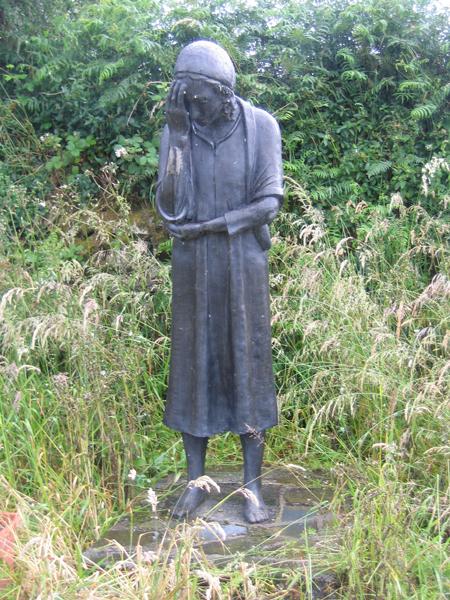
A traditional song, often being the work of an anonymous or forgotten author, can naturally be regarded as the representative expression of a community; and, being still sung by subsequent generations, will have successfully passed the test of time. Its continuous handling down from generation to generation ensures that the feeling is an enduring one. One song in Irish which has been carefully passed on since the mid-nineteenth century, is called ‘Amhrán na bPrátaí Dubha’ (‘The Song of the Black Potatoes’)11 and was probably composed during the Great Famine by Máire Ní Dhroma, who lived near Dungarvan.
11It features ten verses, and is mostly an appeal to mercy from God: ‘A Dhia na Glóire fóir agus freagair sinn’ (‘O God of glory protect us and answer us’), initially substantiating the belief expressed by many that the famine was a divine intervention, as openly stated by C.E. Trevelyan,... (continua)
11It features ten verses, and is mostly an appeal to mercy from God: ‘A Dhia na Glóire fóir agus freagair sinn’ (‘O God of glory protect us and answer us’), initially substantiating the belief expressed by many that the famine was a divine intervention, as openly stated by C.E. Trevelyan,... (continua)
Na prátaí dubha do dhein ár gcomharsana a scaipeadh orainn,
(continua)
(continua)
inviata da DoNQuijote82 11/11/2015 - 12:03
Oró ‘sé do bheatha ‘bhaile
anonimo
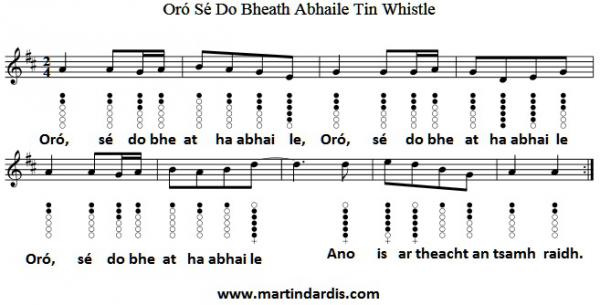
Óró ‘Sé do bheatha ‘bhaile,
(continua)
(continua)
inviata da Krzysiek Wrona 29/9/2015 - 23:31
Tá sé ‘na lá
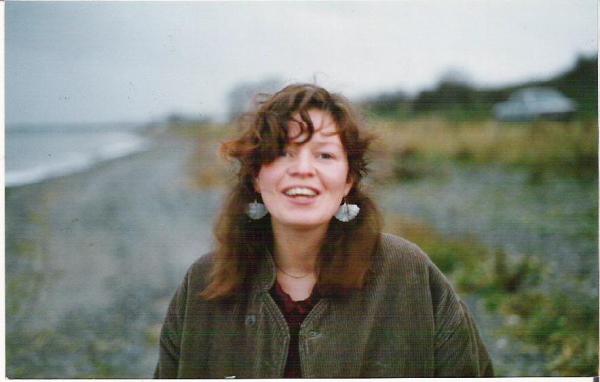
"While reworking an old song 'Níl sé ‘na lá' or 'It is not yet the day' the sentiments of this song came to mind. The song thus evolved into Tá sé ‘ná Lá….It is the day, the time for many changes." - Eithne Ní Uallacháin
An anti-famine song urging for unity among peoples and for action through compassion and the arts.
(From official website)
Song also recorded by:
Cathie Ryan
An anti-famine song urging for unity among peoples and for action through compassion and the arts.
(From official website)
Song also recorded by:
Cathie Ryan
‘S tá sé n’lá a mhíle grá
(continua)
(continua)
inviata da Robbi McMillen 3/9/2015 - 23:04
Na buachaillí bána
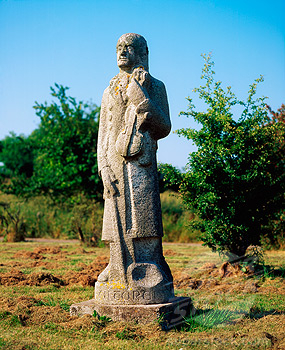
[1800s]
Parole e musica di Antoine Ó Raifteirí (Antoine Ó Reachtabhra, Anthony Raftery, 1779–1835), poeta irlandese che viene comunemente indicato come l’ultimo dei bardi erranti.
Per via di questa sua canzone pare che l’autore trascorse qualche tempo in galera.
Le canzoni composte da Antoine Ó Raifteirí furono sempre tramandate oralmente e questa ed altre furono raccolte e trascritte ai primi del 900 da Dubhghlas de hÍde (Douglas Hyde), autore di diverse raccolte di racconti, poesie e canti irlandesi, nonchè presidente della Repubblica d’Irlanda dal 1938 al 1945.
Testo trovato su The Irish Page
Antoine Ó Raifteirí – originario di Killedan, contea Mayo, rimasto cieco da piccolo in seguito al vaiolo che sterminò quasi interamente la sua famiglia – visse al termine delle ultime rivolte agrarie (quelle dei Whiteboys, eredi dei Levellers seicenteschi), fu testimone della ribellione contro... (continua)
Parole e musica di Antoine Ó Raifteirí (Antoine Ó Reachtabhra, Anthony Raftery, 1779–1835), poeta irlandese che viene comunemente indicato come l’ultimo dei bardi erranti.
Per via di questa sua canzone pare che l’autore trascorse qualche tempo in galera.
Le canzoni composte da Antoine Ó Raifteirí furono sempre tramandate oralmente e questa ed altre furono raccolte e trascritte ai primi del 900 da Dubhghlas de hÍde (Douglas Hyde), autore di diverse raccolte di racconti, poesie e canti irlandesi, nonchè presidente della Repubblica d’Irlanda dal 1938 al 1945.
Testo trovato su The Irish Page
Antoine Ó Raifteirí – originario di Killedan, contea Mayo, rimasto cieco da piccolo in seguito al vaiolo che sterminò quasi interamente la sua famiglia – visse al termine delle ultime rivolte agrarie (quelle dei Whiteboys, eredi dei Levellers seicenteschi), fu testimone della ribellione contro... (continua)
A Dhonncha Brúin 's deas do chraithfinn lámh leat
(continua)
(continua)
inviata da Bernart Bartleby 4/11/2014 - 16:33
Only Our Rivers Run Free
Versione gaelica dal sito ufficiale di Mickey MacConnel
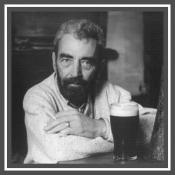
NÍL ACH ÁR ABHAINEACHA SAOR
(continua)
(continua)
21/9/2014 - 22:16
The Men Behind The Wire
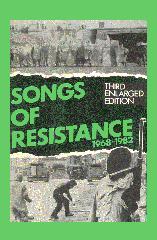
Irish Gaelic version
Dal volumetto Songs of Resistance 1968-1982, di cui mi hanno portato una copia. A pagina 1 è presente il testo inglese; il presente testo in gaelico è a pagina 64. Ignoro se la redazione originale di Paddy (o Pat) McGuigan sia stata in inglese o in gaelico, ma forse direttamente in entrambe le lingue. [RV]
Dal volumetto Songs of Resistance 1968-1982, di cui mi hanno portato una copia. A pagina 1 è presente il testo inglese; il presente testo in gaelico è a pagina 64. Ignoro se la redazione originale di Paddy (o Pat) McGuigan sia stata in inglese o in gaelico, ma forse direttamente in entrambe le lingue. [RV]
FIR NA CISE FADA
(continua)
(continua)
inviata da Riccardo Venturi 26/7/2014 - 09:29
Príosún Cluain Meala
anonimo
[seconda metà del 1700]
Testo trovato qui
L’originale settecentesco, di autore anonimo, fu ripreso da Pádraig Pearse (1879-1916), scrittore e poeta irlandese, noto per essere stato uno dei leader dell’insurrezione repubblicana della Pasqua del 1916, nel corso della quale trovò la morte. La versione inglese fu invece scritta circa un secolo prima da Jeremiah Joseph Callanan (1795–1829), poeta irlandese originario di Cork.
Cluain Meala (l’attuale città irlandese di Clonmel, nel South Tipperary) significa in “gaeilge” – il gaelico irlandese – “prato del miele”, il che evoca le tipiche immagini bucoliche dell’isola verde. Ma nel 1700 i prati e le terre tutte erano di pochi landlords (molti dei quali se ne stavano nelle loro villazze in Inghilterra) e la vita per i contadini, in maggioranza di fede cattolica, non era certo quella di un paradiso dove scorrono latte e miele, per l’appunto… Come... (continua)
Testo trovato qui
L’originale settecentesco, di autore anonimo, fu ripreso da Pádraig Pearse (1879-1916), scrittore e poeta irlandese, noto per essere stato uno dei leader dell’insurrezione repubblicana della Pasqua del 1916, nel corso della quale trovò la morte. La versione inglese fu invece scritta circa un secolo prima da Jeremiah Joseph Callanan (1795–1829), poeta irlandese originario di Cork.
Cluain Meala (l’attuale città irlandese di Clonmel, nel South Tipperary) significa in “gaeilge” – il gaelico irlandese – “prato del miele”, il che evoca le tipiche immagini bucoliche dell’isola verde. Ma nel 1700 i prati e le terre tutte erano di pochi landlords (molti dei quali se ne stavano nelle loro villazze in Inghilterra) e la vita per i contadini, in maggioranza di fede cattolica, non era certo quella di un paradiso dove scorrono latte e miele, per l’appunto… Come... (continua)
Ó, bliain is lá amárach
(continua)
(continua)
inviata da The Lone Ranger 7/5/2010 - 13:47
Cad é sin do'n té sin?
anonimo
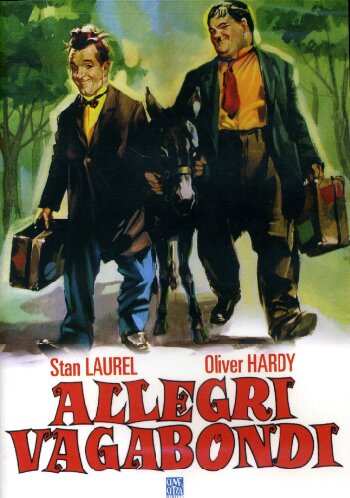
[18th Century/XVIII secolo ?]
Traditional Irish Gaelic Folksong
Canzone tradizionale in gaelico irlandese
Cad é sin do'n té sin (in molte versioni si trova la variante Caide sin ecc.) è, senza ombra di dubbio, la canzone più famosa in lingua gaelica irlandese; è probabile che molti di voi, ascoltandola, riconoscano la melodia per averla sentita chissà dove (alla radio, al cinema, in tv...), senza sapere di che cosa esattamente si tratti. Un vero e proprio simbolo della canzone tradizionale irlandese, che è stata interpretata da tutti i principali gruppi e solisti irlandesi e non (ad esempio, dai Clannad, da Moya Brennan e persino dai Tri Yann).
Una di quelle canzoni dove la "guerra" non è nominata nemmeno di sfuggita, ma che sono di per sé "contro la guerra" e contro ogni imposizione; l'affermazione orgogliosa del proprio individualismo e del diritto di ognuno di fare ciò che gli pare... (continua)
Traditional Irish Gaelic Folksong
Canzone tradizionale in gaelico irlandese
Cad é sin do'n té sin (in molte versioni si trova la variante Caide sin ecc.) è, senza ombra di dubbio, la canzone più famosa in lingua gaelica irlandese; è probabile che molti di voi, ascoltandola, riconoscano la melodia per averla sentita chissà dove (alla radio, al cinema, in tv...), senza sapere di che cosa esattamente si tratti. Un vero e proprio simbolo della canzone tradizionale irlandese, che è stata interpretata da tutti i principali gruppi e solisti irlandesi e non (ad esempio, dai Clannad, da Moya Brennan e persino dai Tri Yann).
Una di quelle canzoni dove la "guerra" non è nominata nemmeno di sfuggita, ma che sono di per sé "contro la guerra" e contro ogni imposizione; l'affermazione orgogliosa del proprio individualismo e del diritto di ognuno di fare ciò che gli pare... (continua)
Chuaigh mé chun aonaigh is dhíol mé mo bhó
(continua)
(continua)
inviata da Riccardo Venturi 16/4/2010 - 13:30
Young Ned Of The Hill
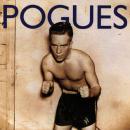
La ballata originale gaelica
Siccome – come dicevo - di versioni di questa ballata ce ne sono davvero molte, ho scelto di postare qui il testo in gaelico e la sua traduzione inglese come trovate su questa pagina
Siccome – come dicevo - di versioni di questa ballata ce ne sono davvero molte, ho scelto di postare qui il testo in gaelico e la sua traduzione inglese come trovate su questa pagina
ÉAMONN AN CHNOIC
(continua)
(continua)
inviata da Alessandro 17/2/2010 - 09:13
Where Have all the Flowers Gone
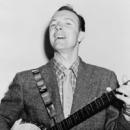
GAELICO IRLANDESE / IRISH GAELIC (GAEILGE) / GAÉLIQUE IRLANDAIS [1]
La versione in gaelico irlandese (o irlandese, tout court) contribuita da ARZ, che desiderava vedere una versione basca della canzone: anche se con un po' di ritardo, lo accontentiamo volentieri. NB. Molti siti (tra i quali questo) riportano un'altra versione irlandese di Feargal Ó Béarra, Cá bhfuil siad uainn, scoth na mbláth?; ma risulta introvabile. Almeno per ora.
Great job !
I'd really like to see a Basque version.
And, if you're interested, this link will lead you to the Gaeilge version of the song!
A version into Irish Gaelic (or, simply, Irish) contributed by ARZ, who wished to see a Basque version of the song: we satisfy now his request with pleasure, though with some delay. Note. Several sites (this, for exemple) mention another Irish version by Feargal Ó Béarra, Cá bhfuil siad uainn, scoth na mbláth?; but we haven't found it. For the moment, insofar. [CCG/AWS Staff]
Great job !
I'd really like to see a Basque version.
And, if you're interested, this link will lead you to the Gaeilge version of the song!
A version into Irish Gaelic (or, simply, Irish) contributed by ARZ, who wished to see a Basque version of the song: we satisfy now his request with pleasure, though with some delay. Note. Several sites (this, for exemple) mention another Irish version by Feargal Ó Béarra, Cá bhfuil siad uainn, scoth na mbláth?; but we haven't found it. For the moment, insofar. [CCG/AWS Staff]
CÁ nDEACHAIGH NA BLÁTHANNA?
(continua)
(continua)
inviata da ARZ 29/7/2009 - 21:13
L'Internationale

GAELICO IRLANDESE [2] / IRISH GAELIC [2]
La seguente è invece la versione letterale della prima strofa e del ritornello dell'originale francese. Proviene anch'essa dal Sito del Partito Comunista d'Irlanda, dov'è però attribuita -a nostro parere erroneamente- a Máirtín Ó Cadhain (che è invece l'autore della versione classica in rima).
The following is a literal translation of the first verse and refrain of the French original into Irish Gaelic. Also reproduced from the Communist Party of Ireland, where it is, however, credited -wrongly, in our opinion- to Máirtín Ó Cadhain (the author of the standard Irish version).
The following is a literal translation of the first verse and refrain of the French original into Irish Gaelic. Also reproduced from the Communist Party of Ireland, where it is, however, credited -wrongly, in our opinion- to Máirtín Ó Cadhain (the author of the standard Irish version).
[AN tINTERNATIONAL]
(continua)
(continua)
inviata da Riccardo Venturi 20/5/2008 - 13:03
Amhrán Grá Vietnam
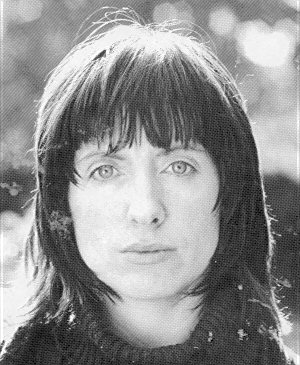
[1969]
Lyrics by Caitlín Maude, as a poem
Testo di Caitlín Maude, come poesia
poi musicato da Caitlín Maude (1975) ed inserito nell'album Caitlín
then set to music by Caitlín Maude (1975) and published in the album Caitlín
The Irish lyrics and the English translation are reproduced from Ælfwine Live Journal.
Lyrics by Caitlín Maude, as a poem
Testo di Caitlín Maude, come poesia
poi musicato da Caitlín Maude (1975) ed inserito nell'album Caitlín
then set to music by Caitlín Maude (1975) and published in the album Caitlín
The Irish lyrics and the English translation are reproduced from Ælfwine Live Journal.
Dúirt síad go raibh muid gan náir
(continua)
(continua)
inviata da Riccardo Venturi 21/3/2007 - 14:04
An Saighdiúir Tréigthe
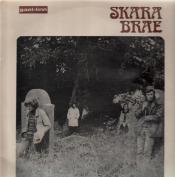
Tradizionale irlandese.
Inserita dagli Skara Brae nel 1971 nell'album "Skara Brae". Una versione inglese è stata eseguita anche dai Chieftains.
Il testo è ripreso dalla Clár Cinn le hÁine Cooke. Grazie a Adriana per la segnalazione!
"In this song, the young man curses his father who has sent him to fight in the King's Army and now he is far from all that he loves."
Inserita dagli Skara Brae nel 1971 nell'album "Skara Brae". Una versione inglese è stata eseguita anche dai Chieftains.
Il testo è ripreso dalla Clár Cinn le hÁine Cooke. Grazie a Adriana per la segnalazione!
"In this song, the young man curses his father who has sent him to fight in the King's Army and now he is far from all that he loves."
Nuair a d’eirigh mé ‘r maidin Dé Céadaoin
(continua)
(continua)
inviata da Adriana e Riccardo 1/12/2005 - 20:25
Mo Ghile Mear
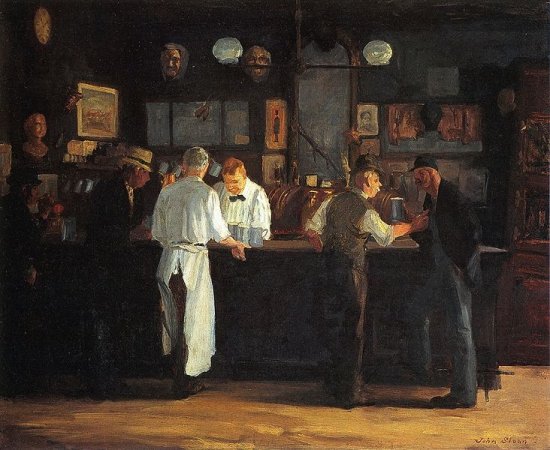
[ca. 1740]
Lyrics by Seán Clárach MacDomhnaill
Testo di Seán Clárach MacDomhnaill
Music: to an Irish traditional tune
Musica: su un motivo tradizionale irlandese
In realtà, nelle intenzioni dell'autore si trattava di una canzone allegorica di ambito politico (Giacobita), dove la "vedova in stracci" è l'Irlanda stessa, e il suo "Ghile Mear" ("prode innamorato") è il principe Carlo Stuart, detto familiarmente "Bonnie Charles" ("bel Carlo"). Ma col tempo, persasi la coscienza degli avvenimenti, è diventata un semplice lamento di una donna per il suo innamorato lontano in guerra; e così la accogliamo nella nostra raccolta. Da notare che, nell'Irlanda di lingua gaelica ("Gaeltacht"), viene cantata tradizionalmente nei pubs al momento della chiusura, quando il gestore tenta di...sgomberare il locale dagli avventori. I quali, per ritardare il momento di tornare a casa, e per bersi un ultimo... (continua)
Lyrics by Seán Clárach MacDomhnaill
Testo di Seán Clárach MacDomhnaill
Music: to an Irish traditional tune
Musica: su un motivo tradizionale irlandese
In realtà, nelle intenzioni dell'autore si trattava di una canzone allegorica di ambito politico (Giacobita), dove la "vedova in stracci" è l'Irlanda stessa, e il suo "Ghile Mear" ("prode innamorato") è il principe Carlo Stuart, detto familiarmente "Bonnie Charles" ("bel Carlo"). Ma col tempo, persasi la coscienza degli avvenimenti, è diventata un semplice lamento di una donna per il suo innamorato lontano in guerra; e così la accogliamo nella nostra raccolta. Da notare che, nell'Irlanda di lingua gaelica ("Gaeltacht"), viene cantata tradizionalmente nei pubs al momento della chiusura, quando il gestore tenta di...sgomberare il locale dagli avventori. I quali, per ritardare il momento di tornare a casa, e per bersi un ultimo... (continua)
Seal da rabhas im' mhaighdean shéimh,
(continua)
(continua)
inviata da Riccardo Venturi 28/11/2005 - 01:21
Cease Fire!
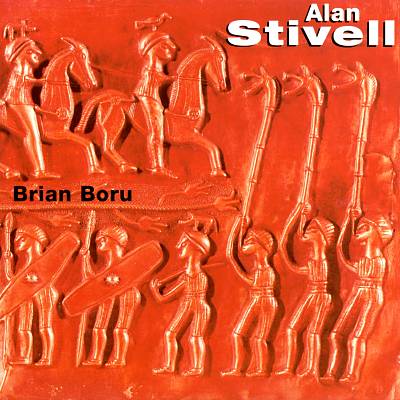
[1995]
Testo gaelico irlandese di Theo Dorgan
Musica di Alan Stivell
Dall'album "Brian Boru"
Irish lyrics by Theo Dorgan
Music by Alan Stivell
From the album "Brian Boru"
Malgrado il titolo in inglese, il testo è in gaelico. E il titolo, "Cessate il fuoco!", dice già molto o tutto: un invito a cessare il fuoco, a smettere di ammazzarsi in Irlanda del Nord, specialmente dopo il sanguinoso e terribile 1994 che sembrò far riprecipitare l'Ulster negli anni peggiori. Un invito che, dopo dieci anni, speriamo sia stato definitivamente accettato e consolidato.
Testo gaelico irlandese di Theo Dorgan
Musica di Alan Stivell
Dall'album "Brian Boru"
Irish lyrics by Theo Dorgan
Music by Alan Stivell
From the album "Brian Boru"
Malgrado il titolo in inglese, il testo è in gaelico. E il titolo, "Cessate il fuoco!", dice già molto o tutto: un invito a cessare il fuoco, a smettere di ammazzarsi in Irlanda del Nord, specialmente dopo il sanguinoso e terribile 1994 che sembrò far riprecipitare l'Ulster negli anni peggiori. Un invito che, dopo dieci anni, speriamo sia stato definitivamente accettato e consolidato.
Nilím, in ifréann
(continua)
(continua)
inviata da Riccardo Venturi 5/8/2005 - 12:18
Percorsi:
I conflitti Irlandesi
×
![]()


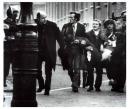
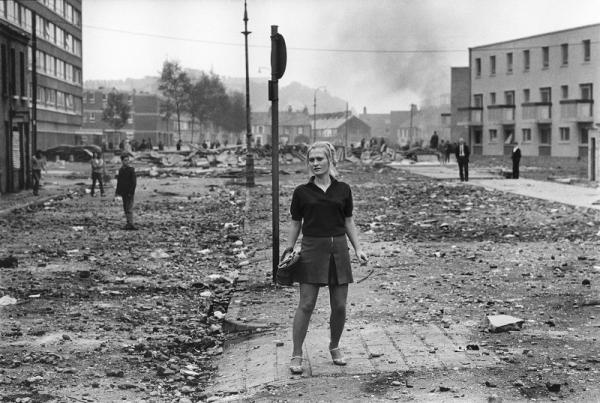
Traduzione in gaelico da lyricstranslate.com